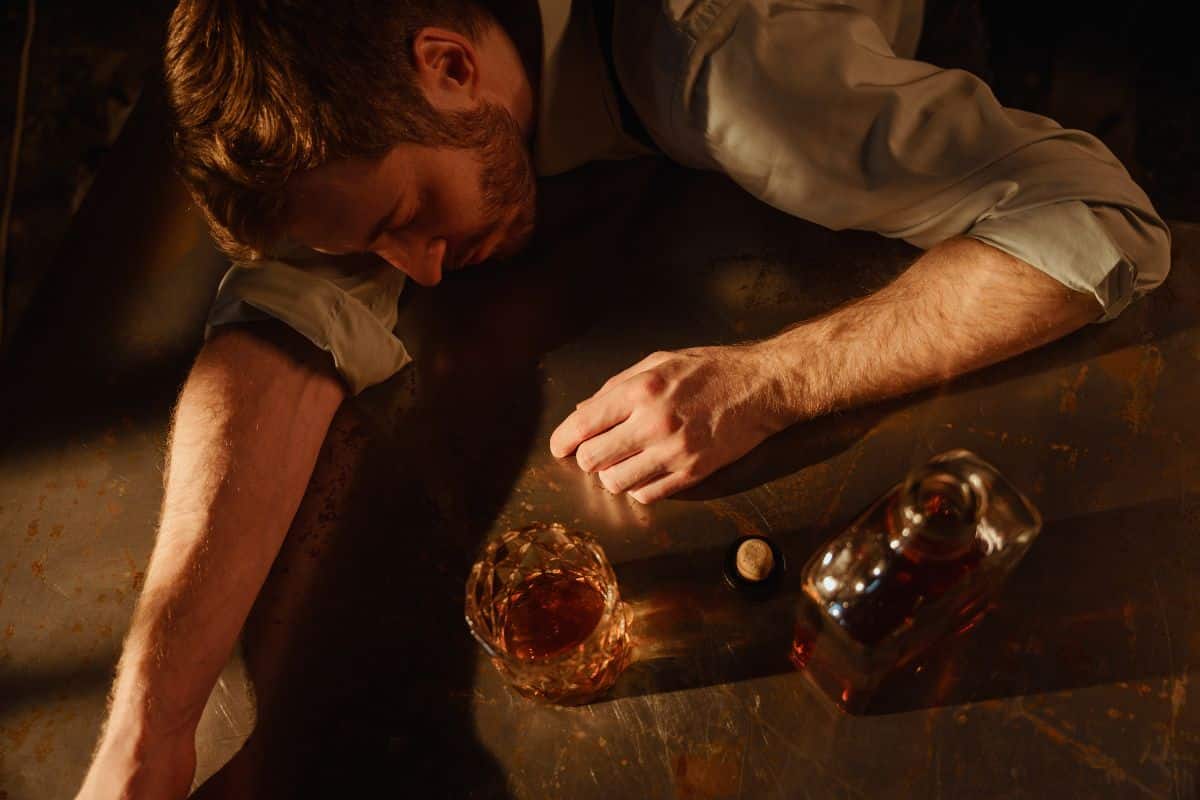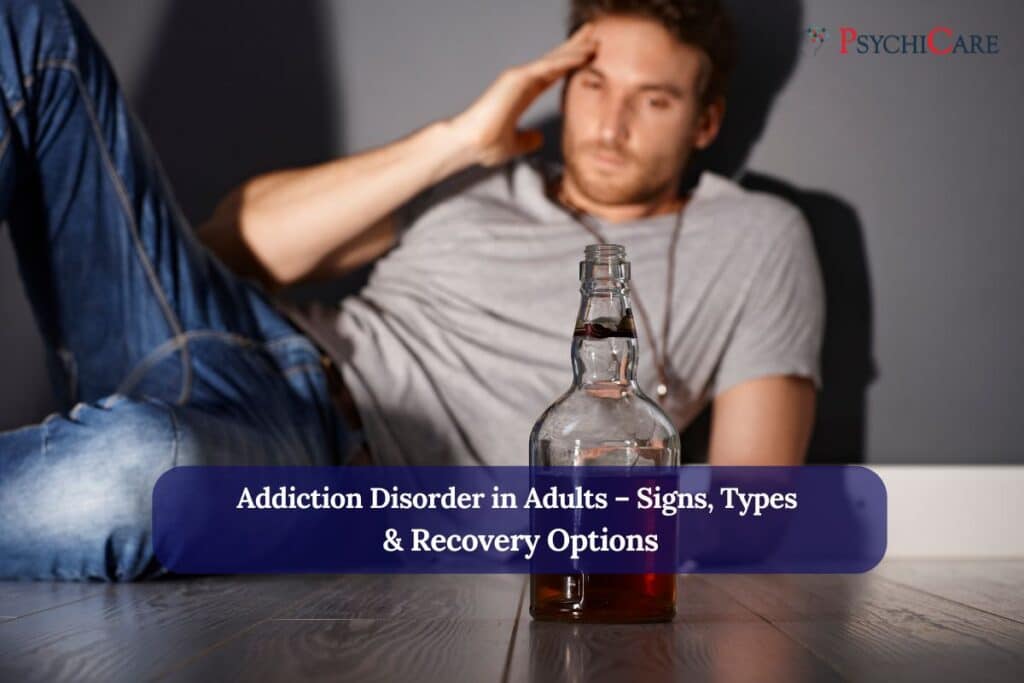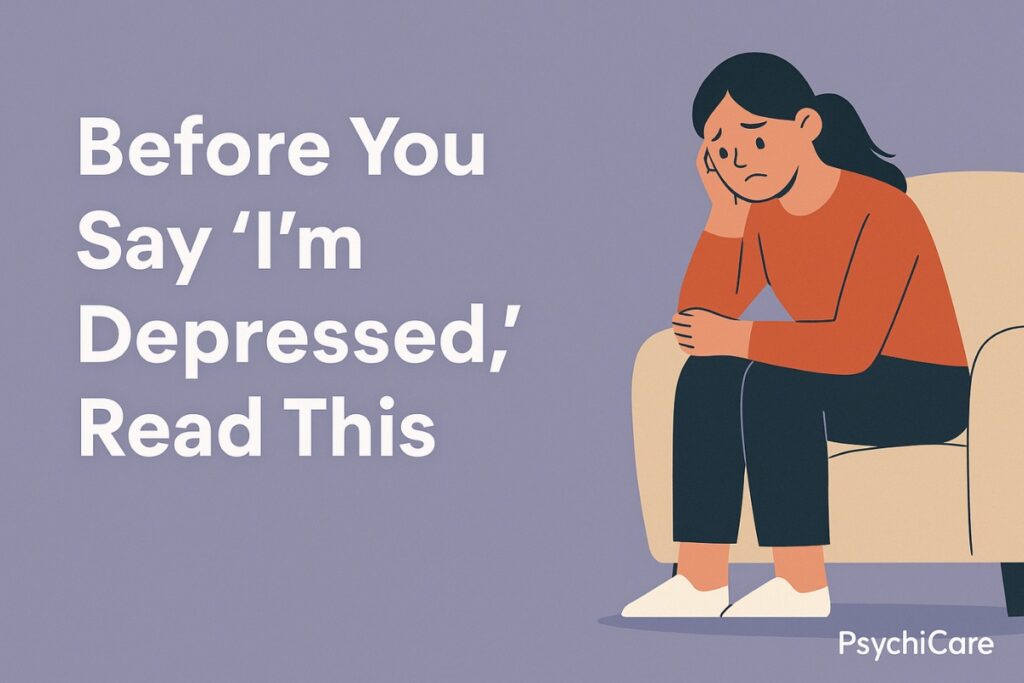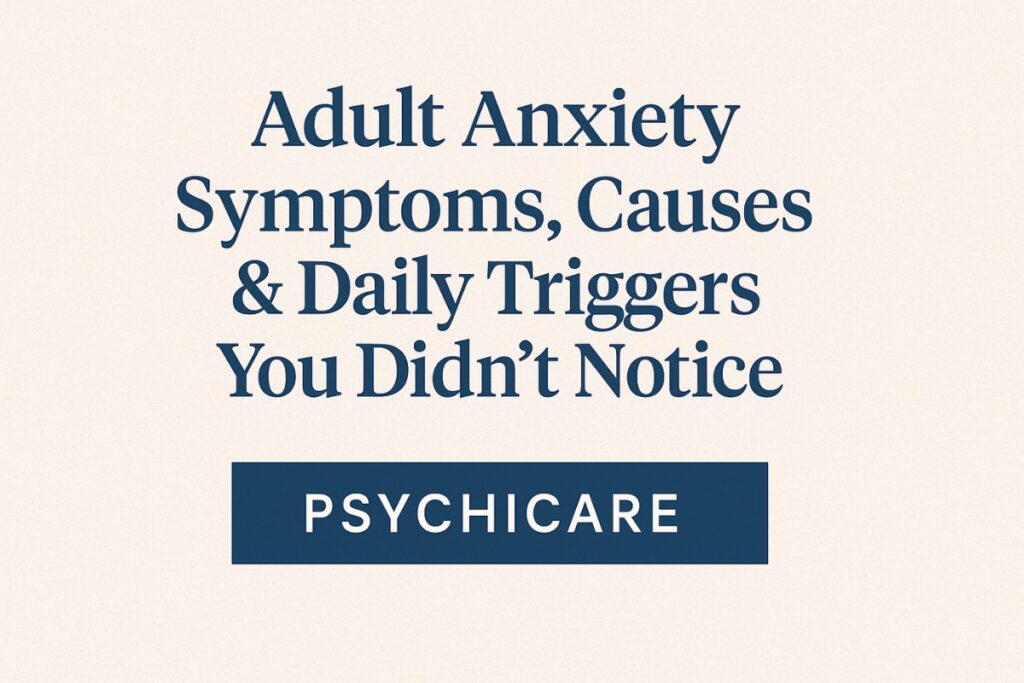Addiction doesn’t always start with a dramatic spiral. For many adults, it begins quietly – a drink to unwind after work, hours lost scrolling on a phone, or an extra pill to ease pain. Over time, these coping habits can turn into a serious disorder that changes how your brain and body work.
📊 Fast facts about addiction in 2025:
The World Health Organization (WHO) reports that 1 in 8 adults worldwide struggles with some form of substance or behavioural addiction.
In India, the Nasha Mukt Bharat Abhiyaan (2025 update) received over 4 lakh calls on its helpline (14446), with alcohol and drug-related issues topping the list.
Behavioural addictions are rising fast. Surveys show that over 30% of young Indian adults report problematic screen or gaming use.
In medical terms, this condition is called an addiction disorder. The DSM-5 and ICD-10 classify it as a mental health condition where people continue harmful behaviour despite knowing the risks.
Addiction Disorder Definition (DSM-5 & ICD-10):
An addiction disorder is a mental health condition where a person loses control over using a substance (like alcohol, nicotine, or drugs) or a behaviour (like gaming, gambling, or sex), even when it causes harm. Both DSM-5 and ICD-10 classify addiction as a medical disorder, not just a bad habit.
Signs You Might Have an Addiction Disorder
Addiction doesn’t always scream for attention. Sometimes it whispers in the background of daily life in the excuses you make, the promises you break, and the moments your family notices before you do.

🔹 Behavioural Signs (What You Try to Hide)
- Topping up a whiskey bottle with water so it looks untouched.
- Promising your partner you’ll uninstall that betting app only to reinstall it the same evening.
- Skipping dinner with friends because you’d rather stay in and game till 3 a.m.
- Telling yourself “just five more minutes on Instagram Reels” and suddenly it’s past midnight.
🔹 Emotional Signs (What You Feel Inside)
- Snapping at family when they ask why you’re always on your phone.
- Feeling guilty after overeating, overspending, or overdrinking but repeating it the next day.
- Using alcohol, smoking, or screen time as the only way to relax after work.
- Anxiety or restlessness when the Wi-Fi goes out or your stash runs low.
🔹 Physical Signs (What the Body Shows)
- Needing three drinks to feel what one used to do.
- Hands shaking if you skip your morning cigarette.
- Headaches, nausea, or sleepless nights when you try to cut down.
- Losing weight (or gaining rapidly) because of food binges or skipped meals.
📊 Real-World Snapshot (2025):
- In India, over 40% of helpline callers (14446) said their addiction started as “just a way to relax after work.”
- A 2025 survey found 1 in 3 adults in India hide their addictive behaviours (drinking, screen use, or gaming) from family.
- WHO notes that 12% of adults worldwide experience withdrawal symptoms from cigarettes to gaming when they try to quit.
Quick Self-Check
- Do you lie about how much or how often you use?
- Do you feel restless or angry when you can’t get your fix?
- Do family or colleagues notice changes before you admit them?
👉 If you answered “yes” more than once, these aren’t just habits. They’re early red flags of addiction disorder.
Types of Addiction Disorders in Adults
Addiction isn’t just about alcohol or drugs. In 2025, adults are struggling with both substance-based addictions and behavioural addictions that sneak into everyday life.
🔹 Substance Addictions (The Ones Everyone Talks About)
- Alcohol Addiction
- Starts as “just a drink to unwind,” but grows into daily dependence.
- Common in social settings, but continues in secrecy at home.
📊 India Fact (2025): Alcohol-related cases make up over 65% of calls to the Nasha Mukt Bharat helpline (14446).
- Nicotine & Tobacco
- Cigarettes, bidis, or chewing tobacco (gutkha, paan masala).
- Adults often justify it as “stress relief,” even when health suffers.
Many callers to addiction helplines in India report smoking breaks as the hardest habit to quit.
- Prescription Drug Misuse
- Sleeping pills, painkillers, anti-anxiety tablets.
- Adults may buy them without prescriptions, especially in urban India where chemists rarely refuse.
A rising issue among professionals who work long hours or night shifts.
- Illicit Drugs
- Cannabis, opioids, and cocaine less openly discussed but steadily rising in cities.
- Often hidden due to stigma and legal risks.
📊 Global: WHO reports over 36 million adults worldwide suffer from opioid use disorder.
Behavioural Addictions (The Ones Often Overlooked)
- Gaming Addiction
- Hours lost to online games like BGMI, PUBG, or FIFA.
- Adults skip meals, lose sleep, or call in “sick” just to play.
📊 India 2025: Nearly 25% of young adults report problematic gaming use.
- Screen & Internet Addiction
- Endless scrolling on Instagram Reels or binge-watching OTT shows.
- Many adults admit they can’t sleep without phone use at night.
Surveys show screen overuse is one of the fastest-growing behavioural addictions in India.
- Gambling & Betting
- From online poker to sports betting apps, small bets turn into financial stress.
- “I’ll stop after this win” is the most common cycle adults report.
- Sex & Pornography Addiction
- Compulsive watching or risky behaviours despite guilt or relationship strain.
- Can remain a hidden addiction due to cultural stigma in India.
- Food Addiction & Binge Eating
- Using food as comfort, followed by shame or guilt.
- India is witnessing rising cases of obesity and disordered eating linked to stress.
Complications of Untreated Addiction
Addiction isn’t just about cravings when left untreated, it creates a chain reaction of problems:
- Physical Health: Liver damage, heart disease, weakened immunity, and higher risk of accidents.
- Mental Health: Anxiety, depression, paranoia, and in severe cases, psychosis.
- Relationships: Broken trust, divorce, family conflict, and neglect of children.
- Work & Finances: Absenteeism, job loss, mounting debt, and financial stress.
- Legal Issues: Drunk driving, drug possession, or conflicts due to gambling.
👉 This is why addiction is classified as a disorder in DSM-5 and ICD-10, it causes serious impairment in daily functioning, not just “bad habits.”
How Addiction Is Diagnosed
Addiction isn’t diagnosed by one test, it’s recognised through patterns. Professionals use:
- DSM-5 Criteria: Lists symptoms such as loss of control, cravings, failed attempts to quit, and continued use despite harm.
- ICD-10 Classification: Recognises both substance use disorders and behavioural addictions.
- Screening Tools: Questionnaires like AUDIT (Alcohol Use Disorders Identification Test) or DAST (Drug Abuse Screening Test).
- Real-Life Check: In India, many diagnoses happen only when addiction disrupts work, studies, or family life.
👉 Put simply: if your use is interfering with your health, relationships, or career, it qualifies as a disorder, not just a habit.
Addiction Across Different Age Groups
Addiction doesn’t wear the same face at every age. What begins as mobile games in childhood can shift into alcohol, porn, or even dating apps in adulthood. Here’s how different age groups often experience addiction:
Children & Teens (3–17 years)
- Mobile & Screen Addiction: Kids as young as 3–4 spend hours on phones or tablets, often handed devices by busy parents.
- Gaming Addiction: Obsession with online games (BGMI, Free Fire, Roblox) leading to skipped meals, sleep issues, and irritability.
- Early Cigarette or Substance Experimentation: Teens experimenting with smoking, vaping, or alcohol at parties.
- 📊 India 2025: Over 35% of children under 10 show screen overuse; by their teens, many transition into gaming or tobacco use.
Young Adults (18–30 years)
- Alcohol & Party Culture: Regular binge drinking in colleges and at social events.
- Cigarettes & Vaping: Common stress relief in hostels, offices, and friend circles.
- Porn & Sex Addiction: Compulsive porn use, risky casual sex, or dependence on dating apps like Tinder for validation.
- Mobile Gaming & Betting: Losing nights (and money) on BGMI, fantasy sports, or betting apps.
- Illegal Substances: Experimentation with cannabis, pills, or stronger drugs in nightlife settings.
- 📊 Nearly 30% of urban young adults in India report problematic gaming or screen use, while 1 in 5 college students admit to binge drinking monthly.
Middle-Aged Adults (31–50 years)
- Alcohol Dependence: A “nightcap” turning into a daily need.
- Cigarettes & Chewing Tobacco: Justified as stress relief during long workdays.
- Prescription Drug Misuse: Sleeping pills or painkillers to handle work and family stress.
- Porn & Sex Addiction: Hidden compulsive behaviour, sometimes linked with marital dissatisfaction.
- Gambling & Betting: Secret IPL or casino betting leading to financial strain.
- 📊 India helpline data (2025) shows rising prescription misuse among professionals aged 35–50.
Older Adults (50+ years)
- Alcohol: Drinking in isolation after retirement or family disputes.
- Prescription Misuse: Painkillers and sleeping pills for chronic conditions.
- Mobile/TV Overuse: Hours spent on screens to fight loneliness.
- Hidden Addictions: Some continue smoking, secret porn use, or even gambling, but rarely discuss it due to stigma.
- 📊 Calls from adults 50+ to the 14446 helpline often involve alcohol or prescription dependency.
Gender Differences in Addiction Disorders
Addiction among adults today isn’t just about alcohol or cigarettes; it’s woven into college life, office culture, nightlife, and digital freedom. Both men and women are struggling, but in different ways shaped by society, work stress, and changing lifestyles.

Men and Addiction (How It Often Shows Up)
- Alcohol & Cigarettes Everywhere: Men often see drinking and chain-smoking as “stress relief” or even a “cool” office habit. Lighting up multiple cigarettes a day during tea breaks is normalised in workplaces.
- Illegal Substances: Cannabis, synthetic drugs, and vaping devices are easy to access in urban settings. Men experiment more openly in clubs or with colleagues after office hours.
- Sex Addiction in Offices: With more women in professional spaces, casual relationships, office affairs, and porn use during stress breaks are increasingly reported.
- Betting & Gambling: Until recently, sports betting was widespread through apps, especially during IPL and football seasons. Even though betting has been banned in India (2025), many men still access it through underground or offshore apps.
📊 Helpline data (14446) shows men still account for the majority of calls related to alcohol and substance use in India.
Women and Addiction (How It’s Changing)
- Alcohol & Party Culture: Women, especially in metros, are drinking more frequently at office parties, clubs, and night outs. Unlike older generations, this isn’t hidden — it’s tied to urban freedom and socialising.
- Multiple Partners & Sex Addiction: With easier access to dating apps and nightlife, women increasingly report multiple casual partners. Office stress and relationship dissatisfaction also fuel compulsive sexual behaviours.
- Cigarettes & Vaping: Many women take up smoking in college as a symbol of freedom. In offices, smoke breaks are as common for women as for men.
- Substances & Pills: Prescription drugs (sleeping tablets, painkillers) are often used privately to manage stress. Recreational drug use at parties is also on the rise.
📊 A 2025 survey showed women in Indian metros are closing the gap with men in alcohol and cigarette consumption, especially in the 18–35 age group.
The Overlap (Addictions Both Genders Share)
- Porn & Screen Use: Equally common across men and women, often hidden behind “stress relief.”
- Gaming & OTT Binges: Night-long gaming or series marathons cut across gender.
- Workplace Stress Coping: Both men and women use cigarettes, alcohol, or casual sex as an escape from burnout and deadlines.
Causes and Risk Factors of Addiction Disorders
Addiction isn’t just about weak willpower. It’s usually a mix of stress, lifestyle, social influence, and easy access that pushes adults deeper into addictive patterns.
Stress and Burnout
- Office Pressure: Long hours, impossible targets, and corporate burnout drive many adults toward alcohol, cigarettes, or quick dopamine hits from screens and sex.
- Real-life pattern: Finishing a deadline → “celebrating” with drinks → repeating it daily until it becomes routine.
📊 India 2025: Over 45% of professionals in metro cities admit to using alcohol or cigarettes to “manage” stress.
Peer Pressure and Social Influence
- College Freedom: Teens and young adults experiment with smoking, alcohol, or dating apps as part of “fitting in.”
- Office Culture: Regular Friday night parties, clubbing with colleagues, and smoke breaks create environments where addiction feels normal.
Easy Access to Substances
- Urban Availability: Alcohol at every store, cigarettes at every street corner, prescription drugs from chemists without much checking.
- Digital Access: Dating apps, porn, and gambling platforms are just a click away and even with betting banned in India (2025), offshore apps are still accessible.
Emotional & Relationship Struggles
- Loneliness in Marriage: Many adults turn to porn, affairs, or alcohol when intimacy breaks down.
- Trauma & Past Abuse: Unhealed wounds push people toward substances or compulsive behaviours as coping mechanisms.
Family and Genetic Risk
- Children of addicted parents are more likely to develop addictions themselves.
- Families that normalise drinking or smoking at home make it harder for kids to see these as dangerous.
Can Addiction Be Prevented?
Not all addictions can be fully prevented, but the risk can be reduced with early awareness and healthy coping habits.
- Family Awareness: Talking openly about alcohol, smoking, and screen time helps children and teens avoid risky habits.
- Healthy Coping Skills: Exercise, hobbies, therapy, and social support can replace unhealthy stress relief.
- Early Intervention: Spotting signs like secrecy, binge drinking, or excessive gaming early makes treatment easier.
- 📊 Studies in India show that children of addicted parents are up to 2x more likely to develop addictions themselves but family education lowers this risk.
Stages of Recovery and Life After Addiction
Recovery doesn’t happen overnight. Most adults go through stages:
- Awareness: Admitting the habit is no longer under control.
- Contemplation: Thinking about quitting but not yet acting.
- Preparation: Seeking therapy or support.
- Action: Actively cutting down or stopping.
- Maintenance: Building healthier routines to avoid relapse.
- Long-Term Recovery: Living a normal life with coping tools and support systems.
👉 Can an addict live a normal life? Yes. With therapy, family support, and lifestyle change, many adults fully recover and rebuild healthy relationships, careers, and self-confidence.
Addiction Disorder vs. Substance Use Disorder
These two terms are often confused:
- Addiction Disorder: A broad term that includes both substance addictions (alcohol, nicotine, drugs) and behavioural addictions (gaming, porn, gambling, screen use).
- Substance Use Disorder (SUD): A medical term defined in DSM-5, focusing only on alcohol, drugs, and prescription misuse.
👉 In simple words: all SUDs are addiction disorders, but not all addiction disorders are SUDs because behavioural addictions also count.
Treatment Options for Addiction Disorders in Adults
Different therapies are used to treat addiction, depending on the type and severity. The most common evidence-based approaches include:
- Cognitive Behavioral Therapy (CBT)
- Contingency Management (CM)
- Rational Emotive Behavior Therapy (REBT)
- Motivational Interviewing (MI)
- Family and Couples Therapy
- 12-Step Facilitation Therapy
- Eye Movement Desensitization and Reprocessing (EMDR)
- Dialectical Behavior Therapy (DBT)
- Matrix Model
- Person-Centered Therapy
👉 Most adults benefit from a combination of these therapies, tailored to their needs.
While sober living provides structure and accountability, understanding the psychological aspects of addiction is equally important. Addiction is not only physical dependence but also involves behavioral and emotional patterns that need attention. Learning more about addiction disorder and how it affects long-term recovery can help individuals better understand why ongoing support matters beyond detox rehab or drug addiction treatment.
Final Thoughts
Addiction in adults isn’t just about alcohol or drugs; it can be as hidden as late-night scrolling, binge gaming, or relying on casual sex and parties to escape stress. What starts as “just a habit” often grows into a disorder that affects health, relationships, and careers.
The good news is that recovery is possible. Whether it’s alcohol, nicotine, prescription drugs, or behavioural addictions like porn and gaming, evidence-based therapies and family support make a lasting difference. With online counselling, help is now private, affordable, and accessible across India.
👉 If you or someone you love is struggling, don’t wait until it becomes a crisis. Reach out whether through the Nasha Mukt Bharat helpline (14446) or with a licensed therapist at PsychiCare and take the first step toward a healthier, addiction-free life.
FAQs on Addiction Disorder in Adults
What is an addiction disorder?
An addiction disorder is a mental health condition where a person loses control over substance use (alcohol, drugs, nicotine) or behaviours (gaming, gambling, sex, porn) despite harmful consequences.
Is addiction a disorder or a disease?
Addiction is both a disease and a disorder. It is a brain disease because it changes how the brain’s reward system works, and it is a disorder because it disrupts daily functioning.
Why is addiction considered a mental disorder?
Addiction is considered a mental disorder because it alters brain function, emotions, and behaviour, leading people to continue harmful habits even when they know the risks.
When does addiction become a problem?
Addiction becomes a problem when it interferes with health, work, relationships, or finances. Common red flags include hiding use, failed attempts to quit, and withdrawal symptoms.
Can addiction cause mental illness?
Yes. Addiction can worsen or trigger conditions like depression, anxiety, and psychosis, and increases the risk of suicidal thoughts if untreated.
Do addictions run in families?
Yes. Genetics and family environment play a role. Children of addicted parents are 2–3 times more likely to develop addictive behaviours themselves.
Which addiction is hardest to quit?
Nicotine (cigarettes) is considered one of the hardest addictions to quit, followed by alcohol and opioids, due to intense cravings and withdrawal symptoms.
Where is addiction in the brain?
Addiction mainly affects the brain’s reward system, including the prefrontal cortex (decision-making) and dopamine pathways (pleasure and motivation).
Is addiction considered a disability?
Yes. In many countries, addiction is considered a disability if it significantly impairs daily functioning. In India, while disability benefits are limited, support is available through the Nasha Mukt Bharat helpline (14446).
Can an addict live a normal life?
Yes. With therapy, family support, and lifestyle changes, many adults recover fully and live healthy, balanced lives.




